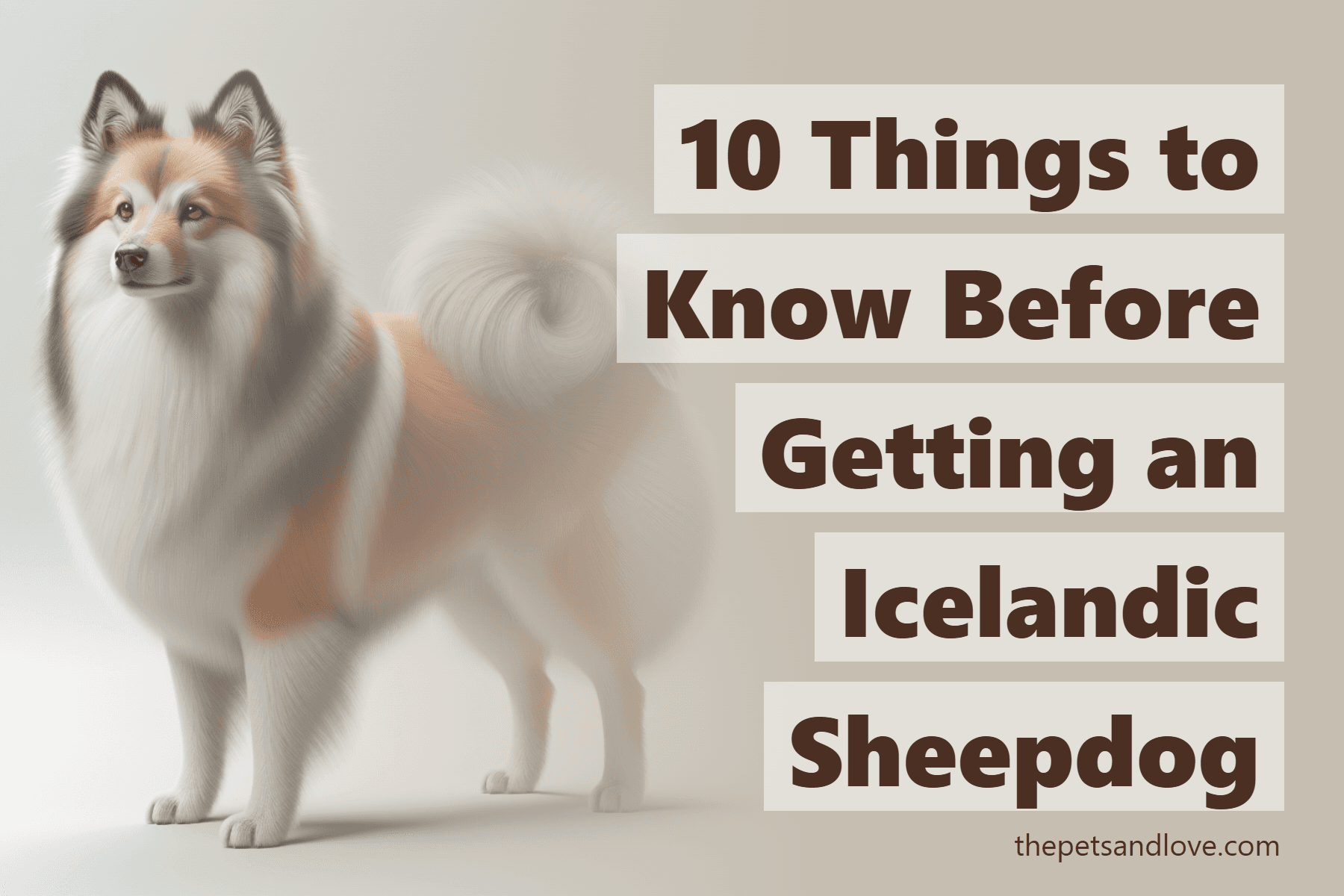10 Things to Know Before Getting an Icelandic Sheepdog

Thinking about bringing home an Icelandic Sheepdog? They’re absolutely charming — full of energy, loyalty, and personality — but they’re not the right fit for every home. After spending time around high-energy herding breeds and seeing what life looks like with them day-to-day, I can tell you: these pups need more than just love. They need space, structure, and serious attention.
Here’s what to know before you fall for those fluffy ears and bright eyes:
A True Viking Legacy
The Icelandic Sheepdog is Iceland’s only native breed, tracing its roots back to dogs brought over by Viking settlers more than a thousand years ago. These spitz-type dogs were bred for a job — herding sheep in rugged, mountainous terrain — and that working-dog spirit is still very much alive in them today.
Super Friendly, Super Clingy
One of the best traits of Icelandic Sheepdogs is how affectionate they are. They’re happiest right in the heart of family life — following you from room to room, always wanting to be part of the action. This isn’t a dog that does well left alone for long hours. If your schedule keeps you out of the house all day, this might not be the breed for you.
They’re great with kids and usually do well with other pets, especially if they’re socialized early. Just be cautious with birds — these dogs were once used to ward off sky predators, and that instinct can still kick in.
Love to Bark — A Lot
Icelandic Sheepdogs are talkers. They’ll bark at birds, at new sounds, at visitors, and sometimes just for fun. It’s part of their watchdog nature, but it can get overwhelming in close living quarters. If you live in an apartment or have sensitive neighbors, be ready to invest time in early training to manage the noise.
High-Energy and Built for Action
These dogs need a lot of exercise — think two hours a day, minimum. Walks, hikes, fetch, agility courses... they thrive when they have a job to do. Without enough physical and mental stimulation, they’ll get bored — and bored herding dogs can get destructive fast.
Also, because of their strong prey drive, it’s not safe to let them off-leash in open, unfenced areas. If it moves, they’ll chase it.
Smart and Trainable (With the Right Approach)
Icelandic Sheepdogs are intelligent and eager to please, which makes training fun — as long as you keep it positive. Harsh corrections won’t work with these sensitive pups. Use treats, praise, and consistency, and they’ll pick up commands quickly. They’re even known for figuring things out on their own — like how to open doors (yep, really).
Grooming: Manageable But Not Mess-Free
They’ve got a thick double coat that sheds — especially during spring and fall. A good brushing once a week (or daily during heavy shedding seasons) will help keep the fur tumbleweeds under control. Bathing once a month is usually enough, and don’t forget routine care like nail trims, ear checks, and brushing their teeth.
Health and Lifespan
The breed is generally healthy and lives around 12–14 years. Like many medium-sized breeds, they can be prone to joint issues like hip dysplasia, along with some eye conditions. Responsible breeders screen for these problems, so always ask about health clearances if you’re getting a puppy.
Living Space and Lifestyle
These dogs do best in homes with a yard where they can stretch their legs and explore safely. Apartment living can be tough due to their energy and barking habits. They're also sensitive and thrive on companionship — so they’re not ideal for people who are away from home a lot.
And yes, they come in several beautiful coat colors — all with white markings that help them stand out in Iceland’s snowy fields. Gorgeous, but that coat requires regular care.
Bottom line? Icelandic Sheepdogs are wonderful companions for active families who have the time, space, and energy to keep up. They’re loyal, cheerful, and full of life — but they really do need to be part of the action. If you’re looking for a quiet, low-maintenance lap dog, this isn’t it. But if you want a dog that’ll hike mountains with you by day and snuggle up at night, they just might be perfect.
Take the Quiz
Is an Icelandic Sheepdog Right for You?
The Icelandic Sheepdog is a friendly and energetic herding breed with a loving nature. Discover if this playful and loyal companion fits your lifestyle by taking the quiz! Answer all questions below to discover your compatibility score and get personalized insights.
Question #1: What is the main reason you want a dog?
Question #2: How active is your lifestyle?
Question #3: How much time can you dedicate to your dog daily?
Question #4: What best describes your home environment?
Question #5: What size dog do you prefer?
Question #6: What personality traits do you want in your dog?
Question #7: How much grooming can you handle?
Question #8: Who else lives with the dog?
Question #9: Is this your first dog?
Please answer all 9 questions to see your results
